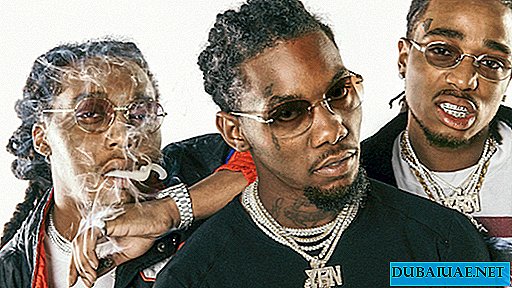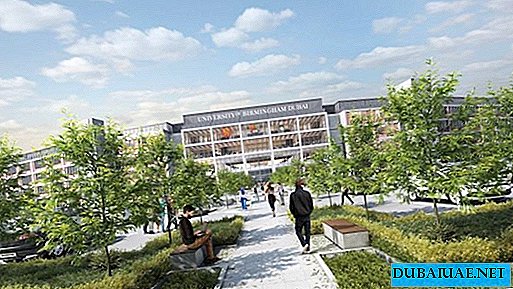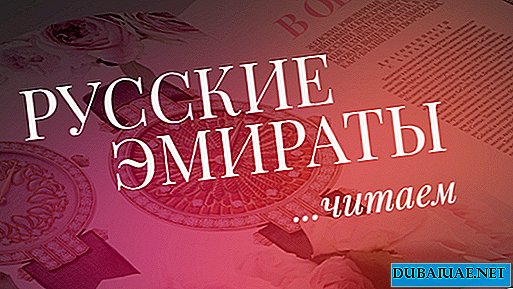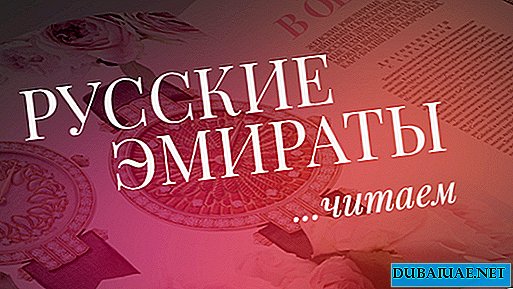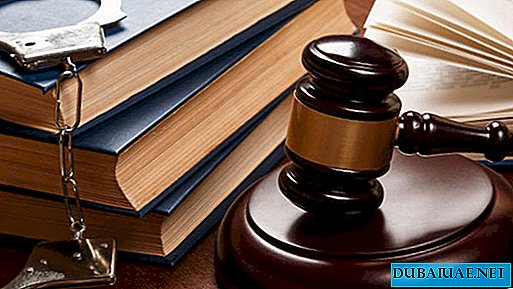Pavel Gennadievich, please tell us about how your diplomatic career developed before coming to the UAE?
I was born in Moscow on December 11, 1956. He graduated from high school at the USSR Embassy in Cuba - my parents were diplomats. He served in the army from 1975 to 1977, and, having retired, he entered MGIMO in the eastern branch of the faculty of international relations, which he successfully graduated in 1983.
In January 1984, I left for Jordan, where I worked until April 1988. Since September 1988 - at the Ministry of Foreign Affairs as an attaché of the countries of the Middle East and North Africa. Between 1990 and 1991, he worked in a special group of the USSR Ministry of Foreign Affairs to prepare the Madrid Peace Conference on Middle East Settlement, in which he later took part. In November 1991, I left as second secretary of the USSR Embassy in Beirut, and worked in Lebanon until April 1996.
Then in 1996-1998. He held the post of First Secretary of the Department of the Middle East and North Africa at the Ministry of Foreign Affairs of the Russian Federation. In September 1998, he moved as an adviser to the Fourth Department of the CIS countries (Georgia, Armenia and Azerbaijan), as an assistant director of the Department. I was invited there by the former ambassador of Russia to the UAE, O. M. Derkovsky, whom I know well. We worked a lot with him before, when we were preparing the Madrid Conference.
In August 1999, I left for Cairo, where I was an adviser - the leader of a group of bilateral relations and domestic politics. I worked there until August 2002. Then he returned to Moscow and was a senior adviser to the General Secretariat of the Russian Foreign Ministry in the Coordination Department and the College. In January 2006, he arrived in the UAE, first as a senior adviser to the Embassy of the Russian Federation, and since April 2007, as an adviser-envoy.
Which of the countries in which you managed to work has left the most noticeable mark in your life or was remembered most of all? What place do you assign to the UAE on this list?
Hard to say. I was in the Emirates in 1988, because the then Ambassador of the USSR to the UAE, Alexander Ivanovich Zinchuk, was also an ambassador to the Sultanate of Oman. In February 1988, we came to the opening ceremony of the USSR Embassy in Muscat. I accompanied Alexander Ivanovich on this trip. And after that I first came to Dubai and Abu Dhabi, from where we flew back to Amman. In Abu Dhabi, the Aeroflot office was then located. And we lived in the Hilton Residence Hotel, which still stands on the embankment of the capital of the Emirate. Of course, Dubai was different then. And the Emirates were completely different.
In general, all Arabists have great love for the Arab countries with their rich and long history, their own unique cultural flavor. I am a happy person in this regard. On my track record are Jordan, Lebanon, Egypt. ... From Lebanon we often traveled to Syria, and I also have a good idea of this country. In 1967, my father worked in Tunisia, where I was with him, which greatly influenced my choice in favor of Arab specialization.
The experience of my communication with the Gulf countries, even then in 1988, was peculiar. We were met by colleagues from the embassy, and when they brought us from Dubai to Abu Dhabi, I kept asking them: "Where are the locals here?" They answered me: "Well, wait a minute, now Mercedes will pass with a golden number, it will be one of the local sheikhs." This kind of fuzziness, that is, the absence of something of its own, Arabic, is very felt in the UAE. As if you live either among the Indians, or among the Pakistanis. After a long conversation with other Arabs, this is completely new to you. I must say that at the initial stage it’s even alien, since here is a completely different national consciousness, a different culture. For a person who knows Arabs well in general, even though they are all completely different, and they cannot be compared unequivocally, this is obvious. This kind of national identification is largely lacking in the UAE. We even communicate with the emirates mostly only at the official level. In ordinary life, we practically do not intersect with them, we even rarely see them. They live their own, very closed circle. That is, who they really are, it is very difficult for us to understand and imagine.
Naturally, after a certain time, this discomfort goes away. But for me, the Emirates is something completely different. It cannot be said worse or better. Simply, you need to look at this country from a completely different point of view, to know it, to understand.
Does the Russian-speaking community here also differ from other Arab countries?
Naturally. Well, firstly, during the Soviet Union, there simply were no Russian or Russian-speaking diasporas or communities living in the Arab region. I do not take into account the descendants of the “white emigration”, of whom there are few in Tunisia or Lebanon. There were separate groups represented by the wives of Arab citizens who had studied at one time in the USSR. There were associations of graduates of our universities, consisting of citizens of the respective Arab countries. There were strong and numerous national communities, for example, the Circassian in Jordan, whose representatives maintained fairly close ties through the Embassy with their historical homeland.
After 1991, the situation changed dramatically. Everyone got the opportunity to travel abroad freely. Some countries turned out to be attractive due to various reasons for former citizens of the USSR, and, accordingly, Russian-speaking communities formed there. Hence the concept of compatriots, which appeared in the mid-90s.
Emirates is a separate story. The overwhelming majority of the Russian-speaking colony living here does not formally fall into the category of compatriots, since the majority of those who remain here continue to remain Russian citizens, working here on a contract, without emirate citizenship and even permanent residence status. Accordingly, the relations with them at the Embassy are not similar to those that take place in other countries, including Arab ones. And the economic situation in the UAE is completely different, attracting many people to work here. They settle here, start families, open their companies and so on. Neither in Saudi Arabia, nor in Bahrain, nor in Kuwait, nor in Qatar, there is nothing like this. Therefore, the Emirates is a kind of phenomenon among the Arab countries.
Since we were talking about compatriots, how and when did the initiative to create a Coordinating Council in the UAE to support them appear?
Everything started from the Second World Congress of Compatriots in November 2006. The fact is that our Ambassador - Andrei Mikhailovich Zakharov - proposed sending one of the representatives of the Russian-language media to the UAE to the Congress. Our choice fell on the magazine "Russian Emirates". At first it was planned to send Irina Ivanova, but in the end Sergey Tokarev went. Well, then the UAE was included in the list of the Ministry of Foreign Affairs for work with compatriots. They recommended that we initiate the creation of the Council and so on. Thus, our emirate compatriots were involved in a targeted state program to support them.
The sad thing is that we still can’t establish for certain how many exactly our compatriots live in the Emirates. The reason is quite commonplace - the local side, despite all our requests, does not give us such information. But, nevertheless, the first country conference of compatriots in the UAE took place, the Council was created and is working. The main thing is that now there is a body that acts as a link between the official Russian government agencies represented in the UAE (the Embassy and the Civil Code of Russia in Dubai) and our compatriots. And this, from my point of view, is extremely important.
When will the second conference of compatriots in the UAE take place this year, and what are the main issues planned to be discussed at it?
Most likely, if we do not move the deadlines, the conference will be held in the second half of May. At first it would be nice to hear a report on the work done by the current Council. Then, apparently, elections of its new composition will take place, steps will be outlined to further intensify its activities. At the same time, we hope that the discussions will be held in a friendly and constructive manner, which will strengthen the consolidating principles and authority of the Council as a truly representative body of our compatriots. By and large, a year is too short a time to wait for any great results and draw conclusions, therefore, the Council should not be criticized, but, on the contrary, encouraged and supported so that it acts more proactively and confidently.
I regret that the Embassy, due to its territorial remoteness, is quite difficult to communicate with our compatriots every day, although the Consulate General of the Russian Federation works in Dubai and the northern emirates, but nevertheless, we would like to establish closer contact with the Russians living in the Emirates. The main problem, I believe, is the lack of a cultural adviser in the Embassy who would take up this block of issues and more purposefully work with compatriots. After all, this communication with our fellow citizens is not limited to consular issues, but involves the consideration of their needs, numerous business and other initiatives, proposals and so on coming from representatives of the community itself, which sometimes there is simply no one to consider. The staff of the Embassy is not so big.
In your opinion, how much have bilateral relations between Russia and the UAE changed recently?
I think that the last three years have given a tremendous impetus to the development of our relations with the UAE. First of all, contacts at all levels have intensified. We have established a very productive and trusting political dialogue with the Emirate side. There is a mutual desire to advance our bilateral cooperation in various fields. The juridical base of our relations is being gradually improved. An exchange of visits at the highest level took place, bearing in mind the stay of Russian President Vladimir V. Putin here in the UAE in September 2007 and a trip to Moscow by the Vice President, Prime Minister of the UAE, the ruler of Dubai, Sheikh Mohammed bin Rashid Al Maktoum, in March this year. of the year. That is, the process is said to have begun. Very solid groundwork has been created for the future, and therefore we look at the prospects of our bilateral relations with great optimism.
Pavel Gennadievich, if you go from state affairs to family affairs, tell me, what do you like to do in your free time, if of course you still have it?
Free time is usually not enough, it's true. I really like spearfishing, which is prohibited here, so I often swim and dive with a mask and fins. Another hobby is computers. I understand them very well, and I like to spend time in front of the monitor, because I also partially suffer from gambling.
Have you ever had a desire to leave the Foreign Ministry system?
There were different situations in this regard. But in general, the process of work in the Foreign Ministry system is delaying, and then it is already difficult to somehow break away from it, although it is often difficult. I know many of my colleagues who left the Foreign Ministry at the time and today own a serious business of their own. But the vast majority of my fellow students, like me, have not changed their original professional choice. True, my son decided not to follow in his father's footsteps and is engaged in information technology. You know how they say in our country: "Diplomacy is the art of opportunity." So I really want these opportunities, in terms of the practical implementation of the state tasks set before us, for us, diplomats, to have more.
Thank you for the conversation, Pavel Gennadievich. I wish you continued success in the diplomatic field.



